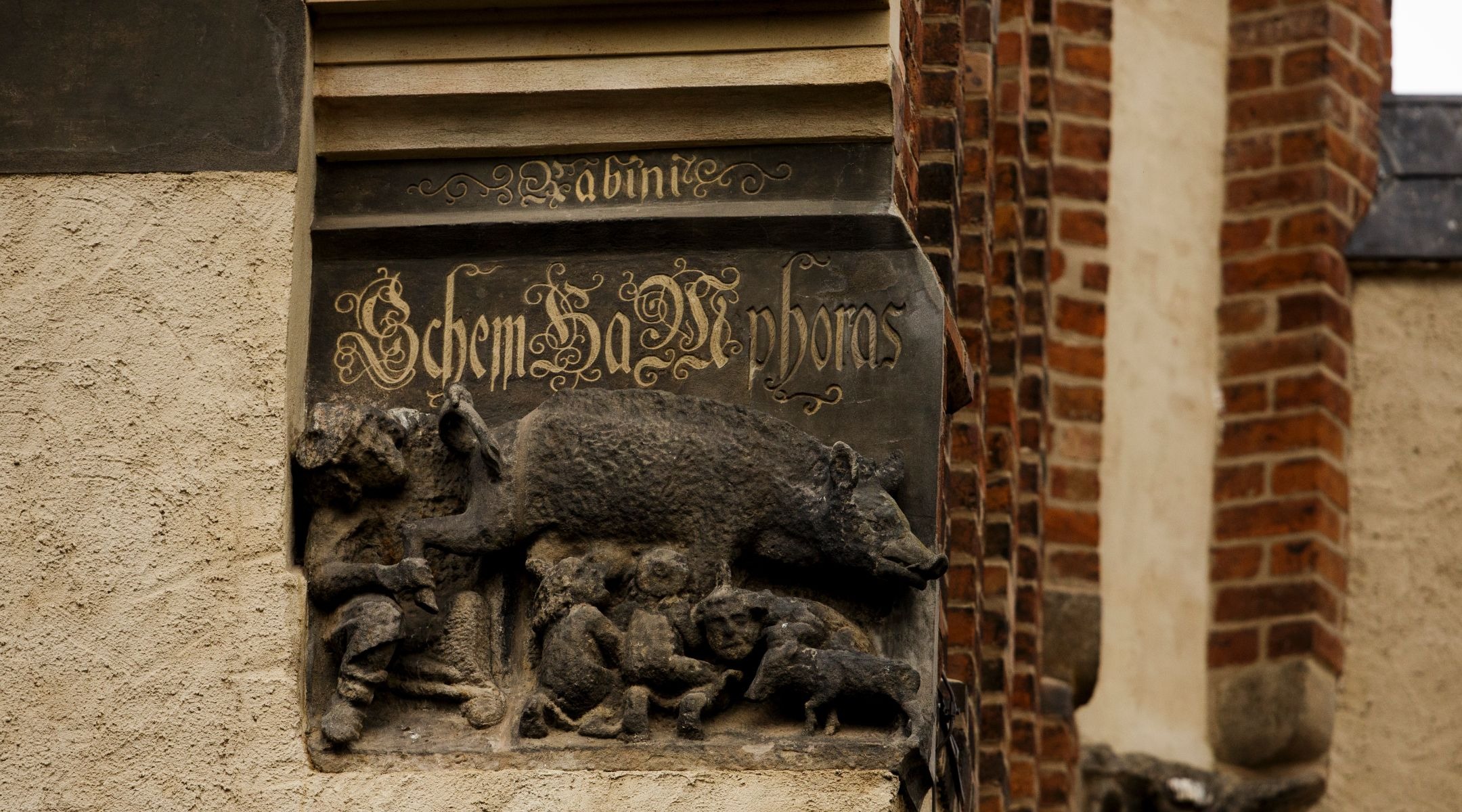BERLIN (JTA) – A German court has ruled that an anti-Semitic relief may remain on the facade of a historic church even though it may offend some sensibilities.
An appeal already has been lodged with the Supreme Court in Karlsruhe, located in the federal state of Baden-Württemberg.
The 14th century relief, called a “Judensau” or “Jews’ sow,” is a common anti-Semitic depiction of a sow suckling Jews and a rabbi peering at the pig’s anus. It is about 13 feet high on an outside wall of the Stadtkirche Wittenberg, the former eastern German city where Martin Luther launched the protestant Reformation in the 16th century.
In 1988, the church established a Holocaust memorial at the site and in 2017, the city added a text in German and English, explaining the historical context of the sculpture and referring to Luther’s anti-Semitism.
But a member of the Jewish community, calling it an insult to himself and to Jewry overall, had demanded last year that the relief be removed. His case failed in a lower court and he appealed.
The Naumburg Higher Regional Court ruled on Tuesday that the relief may remain for the time being. Rejecting the appeal, Judge Volker Buchloh said the memorial places the anti-Semitic sculpture in the proper context. Furthermore, the sculpture is protected as part of a UNESCO World Heritage site.
Such reliefs were often found in medieval churches in Germany and other European countries. Several churches in Germany have debated whether to remove the sculptures.
JTA has documented Jewish history in real-time for over a century. Keep our journalism strong by joining us in supporting independent, award-winning reporting.






